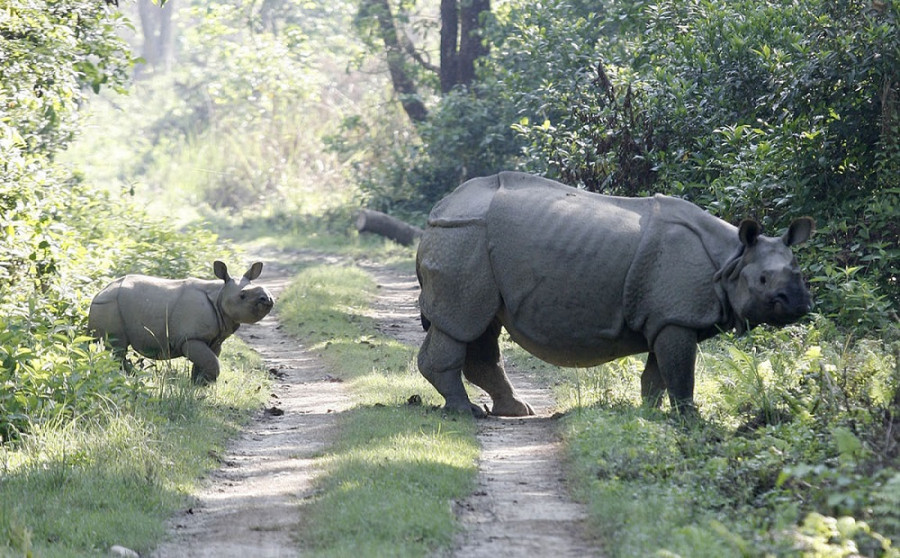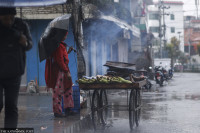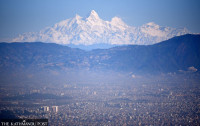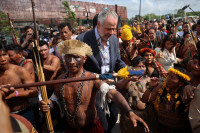Climate & Environment
Covid-19 is putting the country’s hard-earned conservation accomplishments at risk, conservationists warn
While field activities have completely suspended, there are growing concerns over loss of funding which could result in a loss of momentum Nepal has maintained in its conservation efforts.
Chandan Kumar Mandal
The Covid-19 pandemic is threatening the country’s years of nature conservation achievements, with potential repercussions for years to come, conservationists have warned.
In a statement, Society for Conservation Biology (SCB Nepal), a non-governmental organisation of professional conservationists, said that it is concerned about how the Covid-19 pandemic will affect conservation communities in Nepal: practitioners, researchers and everyone.
“Although it is too early to make a conclusion about the impacts of the Covid-19 pandemic, SCB-Nepal is alarmed about its possible repercussions on biodiversity and our ability to continue conservation achievements,” reads the statement.
The conservations’ concerns stem from the pandemic and the resultant lockdown, into eight weeks now, which has led to suspension of all non-essential activities.
According to Prakash K Paudel, president of the SCB Nepal, the Covid-19 pandemic, which has affected every sector globally, will leave short- and long-term impacts on Nepal’s conservation sector.
“Conservation research has been disrupted, making it difficult to generate good knowledge and train young researchers,” Paudel told the Post. “Such disruption will mean there will be less funding available from the conservation organisations and government agencies, and such restriction would stop researchers from continuing with their work on the ground.”
Raju Acharya, another conservationist, said regular conservation and research-related activities have been completely halted.
“Field researchers have not been able to work on the ground. For example, our research on the clouded leopard has been put on hold for now,” said Acharya, who is also executive director of Friends of Nature Nepal, an organisation that works with the environment and in wildlife conservation.
“The trouble due to Covid-19 has already made it worse for small organisations which rely on small-scale grants for research. They have completely stopped for now. For example, zoos, which also support wildlife research from its income, have stopped financial assistance as zoos have remained shut for weeks now.”
Nepal has made some remarkable strides in conservation over the last decades, as a result, the country has witnessed a rise in many wildlife populations like tigers, rhinoceros, elephants, gharials, and blackbuck among others. The country’s green cover has also increased across much of the country.
The decade-long insurgency and political instability resulted in massive loss of the country’s valuable wildlife and led to deforestation in the past, according to conservationists. Now, the Covid-19 crisis has caused a sudden disruption in many regular conservation activities on the ground and might put the hard-earned achievements at risk, they say.
“Nepal’s biggest loss of wildlife, for instance, rhino poaching in Babai Valley and deforestation occurred during the periods of political instability and social unrest. Wildlife hunting, poaching and deforestation escalate during such difficult times,” said Paudel. “We are deeply concerned about recent reports of increased wildlife poaching and deforestation.”
There have been reports of wildlife poaching and increased deforestation in several parts of the country in the wake of the Covid-19-induced lockdown.
“While air quality has improved and nature is taking a break, there have been incidents of poaching and deforestation, mainly in rural areas. Outskirts of urban areas have not faced such problems,” said Acharya. “In rural areas, where people have returned home from cities, they are involved in illegal fishing, killing of wildlife and cutting down forests in the cover of the pandemic.”
Likewise, regular conservation activities have been suspended due to Covid-19 pandemic, fearing infection among park officials and others involved. The rhino count has already been called off for an indefinite period.
According to Paudel, both field-based and laboratory-based conservation research activities have been severely affected, as some field data have to be collected in a specific season, and failing to complete it in the specified time period means that researchers will have to wait until next year.
Not only researchers but also fieldworks of several MSc and PhD students have been cancelled due to the lockdown.
“Our frontline conservation staff are in the urgent need of safety equipment and resources, including better pay during such pandemics and other emergencies. Such a situation discourages them,” said Paudel. “The Nepal government, which is already not very supportive of investing in the conservation sector, will take this situation as an exception to reduce funding on regular programmes.”
Suspension of international flights and zero inflow of tourists have completely devastated Nepal’s nature-based tourism, causing a further drop in revenue–critical to sustaining conservation activities in protected areas and buffer zones.
The Society for Conservation Biology has called on the Nepal government to make more funds available for both research and conservation programs.
According to Acharya, global pandemic might work both ways for the country’s conservation sector in future.
“There is a strong realisation that people destroyed nature so that they are bearing the brunt in the form of Covid-19 pandemic. Governments at all three levels might increase funding for nature conservation now,” said Acharya. “But we also know people tend to forget when the crisis is over.”




 20.12°C Kathmandu
20.12°C Kathmandu











